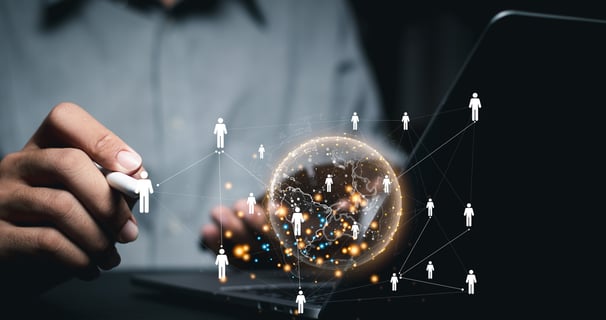The Impact of Technology on Modern Society
TECH NEWSFUTURE TECH


Technology has rapidly transformed the world we live in, touching every aspect of our daily lives. From communication to healthcare, education to entertainment, and business to personal security, technology's influence is undeniable. As we move further into the digital age, it’s essential to explore the profound ways in which technology is shaping modern society.
1. Communication Revolution
One of the most significant impacts of technology is the transformation of communication. The advent of smartphones, social media platforms, and instant messaging apps has made it easier than ever to stay connected with friends, family, and colleagues, regardless of geographical distance. Video calls have become commonplace, allowing face-to-face interaction from opposite sides of the globe. This ease of communication has fostered global collaboration and connectedness, shrinking the world into a global village.
2. Healthcare Advancements
Technology has revolutionized the healthcare industry, improving patient outcomes and increasing access to medical services. Innovations like telemedicine, wearable health devices, and AI-driven diagnostics are enabling doctors to provide better, more personalized care. For instance, AI can analyze vast amounts of medical data to predict diseases, recommend treatments, and even assist in surgeries. Furthermore, the development of medical apps and online portals allows patients to monitor their health and manage their medical records, making healthcare more accessible.
3. Education Transformation
Education has also been significantly impacted by technology. The rise of e-learning platforms, digital textbooks, and virtual classrooms has made education more accessible and flexible. Students can now learn from anywhere in the world, access vast online resources, and collaborate with peers remotely. This has democratized education, allowing individuals from diverse backgrounds to gain knowledge and skills that were once out of reach. Moreover, technology in education is paving the way for personalized learning, where AI can tailor educational content to each student’s needs, enhancing the learning experience.
4. Economic Growth and Job Creation
Technology has been a driving force behind economic growth. The rise of tech companies and startups has created millions of jobs worldwide, contributing significantly to the global economy. Industries such as e-commerce, fintech, and digital marketing have emerged, providing new opportunities for innovation and entrepreneurship. Additionally, automation and AI are reshaping traditional industries, making processes more efficient and cost-effective. While there are concerns about job displacement due to automation, the tech industry continues to create new roles, particularly in fields like software development, data analysis, and cybersecurity.
5. Challenges and Ethical Considerations
Despite its many benefits, technology also presents challenges. Issues like data privacy, cybersecurity, and the digital divide are significant concerns in today’s tech-driven world. The vast amounts of data generated by users are often collected and used by companies, raising questions about privacy and consent. Cybersecurity threats, including hacking and identity theft, are also on the rise, necessitating robust measures to protect sensitive information. Furthermore, the digital divide – the gap between those who have access to technology and those who do not – continues to be a barrier to equality, particularly in developing regions.
6. Environmental Impact
The relationship between technology and the environment is complex. On one hand, technological advancements have led to more efficient use of resources, reduced emissions, and the development of clean energy solutions. For example, electric vehicles and renewable energy technologies are helping to combat climate change. On the other hand, the production and disposal of electronic devices contribute to environmental degradation. E-waste is a growing problem, with millions of tons of discarded electronics polluting the environment each year. Therefore, finding a balance between technological progress and environmental sustainability is crucial.
7. The Future of Technology
As we look to the future, technology will continue to evolve and shape our world in ways we cannot fully predict. Emerging technologies like artificial intelligence, quantum computing, and blockchain have the potential to revolutionize industries and solve complex global challenges. For instance, AI could lead to breakthroughs in drug discovery, while quantum computing could transform fields like cryptography and material science. Meanwhile, blockchain technology promises to increase transparency and security in areas like finance and supply chain management.
However, as technology continues to advance, it is essential to address the ethical and societal implications that come with it. Ensuring that technology is used responsibly and equitably will be key to maximizing its benefits while minimizing potential harms.
Conclusion
Technology is an unstoppable force that is reshaping our world in profound ways. While it brings many benefits, it also presents challenges that require careful consideration and action. As we embrace the opportunities that technology offers, we must also be mindful of its impact on society and the environment. By fostering innovation and addressing the ethical and practical issues that arise, we can harness the power of technology to create a better future for all.




